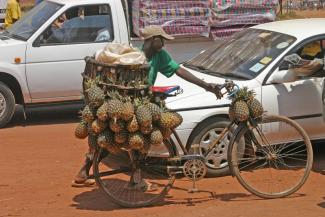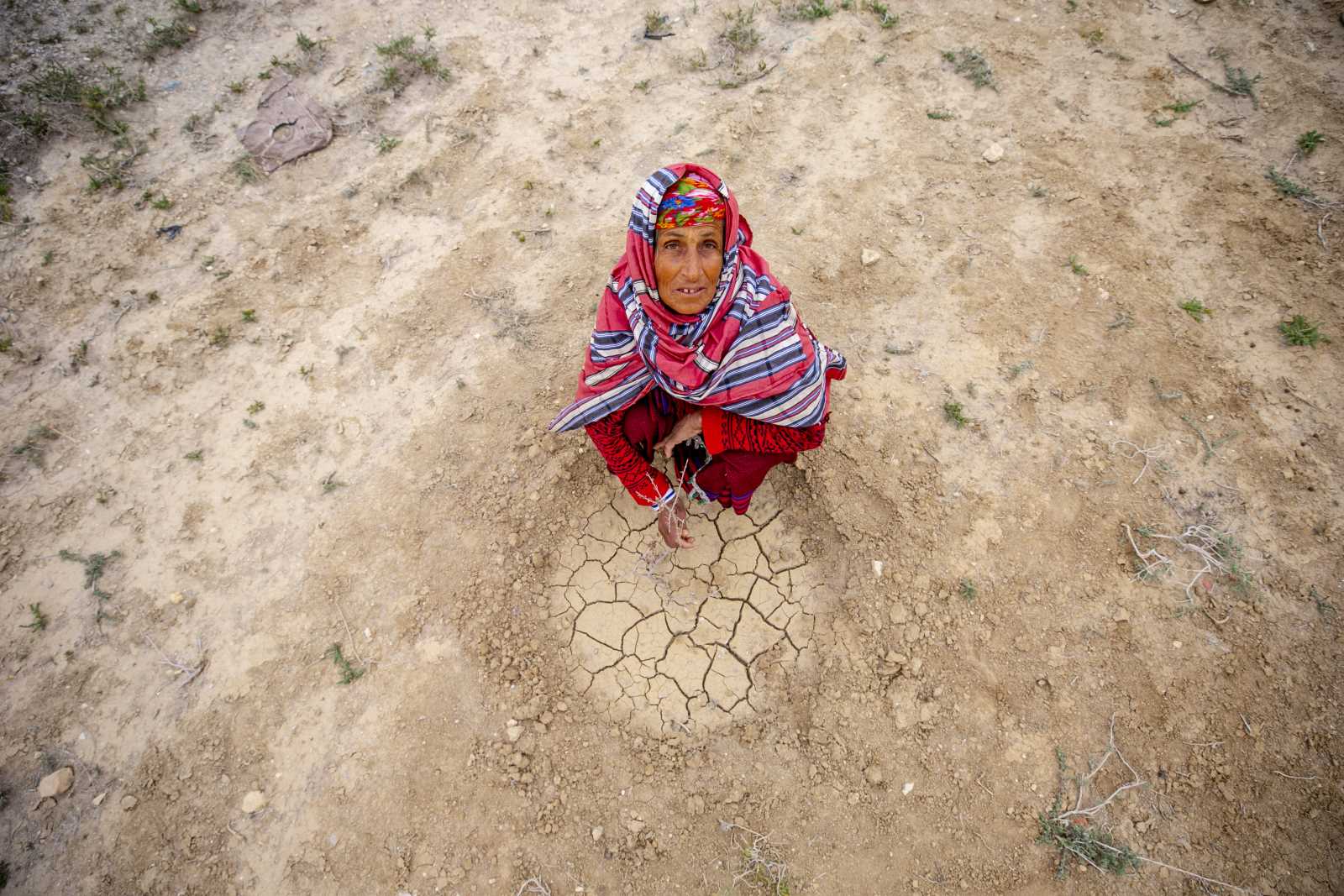Food and nutrition security
More money means better food

Studies have shown that higher incomes lead to higher intakes of micronutrients. That is true for smallholder farmers in developing countries – no matter whether they produce food crops, cotton or coffee. Today, smallholders suffer the highest rates of hunger and malnutrition. Therefore, measures to increase FNS should address them first.
Accordingly, Ibrahim Hassane Mayaki, who heads the African Union’s New Partnership for Africa’s Development (NEPAD), asks governments in Sub-Sahara Africa to positively discriminate smallholder farmers. “Transition will take place when smallholders are transformed”, he told a conference organised by Germany’s KfW development bank in Frankfurt in July.
Agricultural development is now much higher on the agenda of many African states than it was 20 years ago, but it still is not getting enough attention, Mayaki argues. “The budget reveals a government’s real priority.” According to him, budget allocations for nutrition – a crucial factor to fight hunger and malnutrition – are still very limited. Farmers’ organisations can help to promote smallholders’ demands, he says.
Furthermore, agricultural and economic policy should be made in a coherent manner. In Mayaki’s experience, however, sub-Saharan governments often lack the ability to deal with multisectoral challenges, and FNS is such a challenge. “Could we have nutrition departments in every ministry?,” he asks. Relevant ministries include those for health, education, agriculture, infrastructure and others.
More research needed
According to Matin Qaim, professor of international food economics and rural development at Göttingen University, various approaches lead to higher incomes and thus improve FNS. Important issues include agricultural technology, biofortification (the breeding of crops with increased nutritional value) and better market access for the farmers. However, Qaim calls for more research to better understand the linkages between agriculture and nutrition.
Qaim says, moreover, that it can be useful to certify that farms adhere to sustainability standards. Research in Uganda showed that this approach increased coffee farmers’ control of production and revenues, and that families’ micronutrient intake increased accordingly. The involvement of women was particularly important, Qaim reports, because “the spending of men and women is different”. Mothers tend to spend more on healthy diets than fathers.
Steve Wiggins, from the Overseas Development Institute in London, emphasises that agricultural development is not the only determinant of FNS. Other important factors include safe water, sanitation and secondary education for girls. Wiggin’s main recommendation is to invest in rural infrastructure, including roads, schools, electric power, irrigation systems and health facilities.
Granting credits through institutions
Paul Njaga, who heads Kenya’s Chase Bank, says that agriculture is a crucially important sector in his country, but it accounts only for about five percent of the nationally allocated credits. “Financing agriculture is not easy,” the banker stresses. The risks are high, as entire harvests may be lost. At the same time, smallholders struggle to come up with collateral. Since their businesses are small, the credit sums they need are small too, which means that a bank’s administrative costs are high.
Nevertheless, financing agriculture can be sustainable and profitable, according to Njaga, if it is done the right way. His bank is one of three leading banks in Kenya that are involved in agribusiness. Chase Bank usually works with cooperatives and food processors rather than handing out loans to individual farmers.
International agencies such as KfW, however, cannot provide financial services to smallholders directly. A promising approach, however, is to provide funding to micro-finance institutions (MFIs) that work with smallholders in developing countries. DEG, the KfW subsidiary that supports private-sector investments, does not give loans that are worth less than $ 5 million, for example. Smallholders in developing countries cannot absorb such an amount, but MFIs can.
Katja Dombrowski















